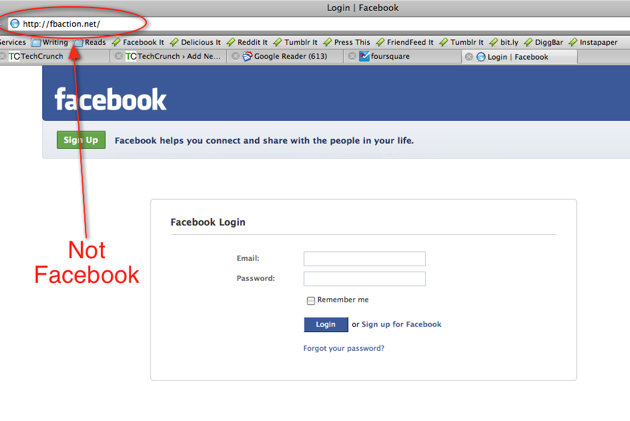The Latest from TechCrunch |  |
| Disney Buys Into Hulu. YouTube Should Be Worried. Posted: 30 Apr 2009 08:53 AM PDT
As Hulu continues its spectacular rise (it is the No. 3 video site in the U.S. and is closing in on No. 2), it just got major buy-in from yet another major media company. Disney is now an investor, joining News Corp and NBC (along with private equity firm Providence Equity Partners). Each of the three media companies now reportedly own 27 percent of Hulu. As the initial exclusivity for NBC and Fox content expires, Hulu will be adding Disney/ABC videos to its distribution mix as well. Hulu is becoming the preferred distribution channel for the big media companies. And it is succeeding in attracting the fickle Web audience. This should worry YouTube, which is still casting about for a business model that will pay for its enormous storage and bandwidth costs. The media companies cannot ignore YouTube just yet, but by strengthening Hulu they can give it their best content first. In the world of media companies, every new distribution window is a new opportunity to make money. So instead of thinking of the Web as one big distribution window, maybe Hulu gets first dibs at the hottest shows and movies, and then YouTube after a while. the media companies would like nothing better than to displace YouTube as the king of all Web video. And with a stake in Hulu’s success, they have even more incentive to help it win. But if Hulu does become the de facto distribution vehicle for the media companies, the TV and movie companies who are not part of the partnership will be at a disadvantage. Companies like CBS and Time Warner have to consider joining as well. But Hulu can’t let them all in because at a certain point it will trigger antitrust concerns. So there is a limit to how dominant Hulu can become, but Hulu is still along way from getting there (Hulu streamed an estimated 380 million videos in March in the U.S., compared to 5.9 billion for YouTube). For now, merely presenting a serious challenge to YouTube is a good thing for competition and for video on the Web. Crunch Network: CrunchBoard because it’s time for you to find a new Job2.0 |
| Mobile Communication Startup fring Bags More Funding Posted: 30 Apr 2009 08:38 AM PDT
The actual amount raised was not shared, but we’re told that the third round is pretty much on par with the Series B round the company closed in August 2007 (estimated at $12 million when we reported it, but more in the vicinity of $10 million according to later received information) and that it’s “most definitely not a downround”. Fring markets an entirely free, ad-supported mobile application that allows users to engage in Web-based social activities, including VoIP calling, instant messaging and social networking. The startup says it intends to use the extra funding to make the app compatible with more mobile environments (Android, anyone?), support more Web-based community services, introduce a couple of new features and make some usability improvements across the board. When the economy started crumbling last Fall, fring let go 20% of its workforce, although at the time it stated revenues were actually on the upside but it needed to cut costs to extend its runway through 2009. The company is up against a slew of well-funded startup rivals, including Nimbuzz, Truphone and eBuddy, but also increasingly against Skype, which is eyeing the mobile handset market more and more. Crunch Network: CrunchBoard because it’s time for you to find a new Job2.0 |
| New Phishing Attack Spreading On Facebook. This Time From FBstarter Posted: 30 Apr 2009 08:04 AM PDT
Yesterday a phishing scam spread across Facebook in the form of a message form a friend asking you to click on a link which took you to what appeared to be a Facebook login, but was actually at a different URL, http://fbaction.net. It was quickly blocked. But now there seems to be a new one linking to http://fbstarter.com/. It comes in the form of a message from a friend telling you to “Look at this!” When you click on the link, you are taken to what appears to be a Facebook sign-in page. If you go ahead and sign in, the phishers have access to your account and can then send messages to all of your friends. I just got one of these messages. It looks like this:
And fbstarter is hyperlinked.
If you do sign in by mistake, the best thing to do is to change your password as quickly as possible. Make sure you are signed into the real Facebook when you do that, however. Again, it looks like this phishing attack is very successful. Right now “fbstarter” is the No. 1 hottest term on Google Trends. I have alerted Facebook to this attack. Crunch Network: CrunchGear drool over the sexiest new gadgets and hardware. |
| AOL’s Musical Chairs: Ad Head Coleman Out, Google’s Levick In Posted: 30 Apr 2009 06:53 AM PDT
With AOL’s new CEO Tim Armstrong in place, the game of musical chairs is under way. The first big departure being announced today is AOL’s head of sales Greg Coleman, who only joined in February, 2009 from Yahoo. Replacing him is Jeff Levick, who worked under Armstrong at Google as VP of Industry Development and Marketing in North America. Levick’s new title at AOL will be President, Global Advertising and Strategy, where he wlil be in charge of AOL’s ad network Platform-A. Coleman was not Armstrong’s hire and obviously he wants his own man in such a key position. Advertising revenues were down 20 percent in the first quarter. Armstrong needs to right the AOL ship before Time Warner can spin it off, which it is planning on doing. Meanwhile, the aftermath of Armstrong’s departure from Google continues. After Armstrong left, there was an internal power struggle at Google to see who would take his spot. When Dennis Woodside, the chief of Google sales in the UK, won that battle, one of the other contenders for the spot, Sukhinder Singh Cassidy, left for Accel Partners Then just yesterday, on an unrelated note, former DoubleCklick CEO David Rosenblatt and currently head of display advertising at Google, announced that he too will be leaving. Meanwhile, the longtime chief of all global sales at Google, Omid Kordestani, is transitioning into a senior adviser role in order to make way for Nikesh Arora, currently President of International Operations, to take his spot. Arora was also an internal candidate for Armstrong’s position. While all of these executives are running around to find a new musical chair to sit in, Armstrong is standing in the middle, watching with a smile. (Photo credit: Flickr/makelessnoise) Crunch Network: CrunchBase the free database of technology companies, people, and investors |
| Facebook Rumored To Be Looking For Funding At $5-6 Billion Valuation Posted: 30 Apr 2009 04:01 AM PDT
The article cites Facebook to be looking for fresh capital at a $5 to $6 billion valuation, with the potential investors only willing to pour more capital in the company in the $2 billion to $3 billion valuation range. This is almost exactly what we reported earlier when we learned that Facebook may have received a term sheet for an investment at a $2 billion valuation from General Atlantic. The New York Post, however, claims no term sheets have been drawn up to date. The articles cites unnamed sources with knowledge of the situation, but that none of the companies involved will comment officially or so far failed to return requests for more information. As soon as day breaks in the U.S., we’ll do a bit of poking of our own. From the mouths of ‘people familiar with the matter’, Facebook’s attempt to raise additional capital is supposedly causing some friction with its existing investors (which include Accel Partners, Greylock Partners, Meritech Capital Partners, Microsoft and Peter Thiel), who are said to be against diluting their shares and urging the company to start squeezing some real revenue out of its now more than 200 million registered users. As Michael wrote earlier, Facebook may not have a lot of choice:
To be continued, no doubt. Crunch Network: CrunchGear drool over the sexiest new gadgets and hardware. |
| ChaCha Co-Founder Brad Bostic Steps Down As President Posted: 30 Apr 2009 03:28 AM PDT
In an interview with the Indianapolis Business Journal, Bostic stresses that he will stay involved with the company as an advisor and strategist, saying ChaCha has matured enough for him no longer to be needed for day-to-day operations.
More interestingly, Bostic openly discussed the fact that ChaCha is struggling to become a profitable company in the current economic climate, despite the fact it fired 1/3 of its workforce and brought on salary cuts for the rest of the employees earlier this year. ChaCha lets people ask questions from their mobile phones to have humans (so-called Guides, often part-timers working from home) attempt to correctly answer them by text message. ChaCha makes money by embedding advertisements in those answers, and advertisers pay only when users respond by clicking through to the text ad. In the past, we’ve questioned the scalability of its business model, and we’ve also made fun of some of the answers that have been sent to users by Guides. We pegged the company’s total funding at $58 million, but Bostic in the interview says only $43 million was poured into the company, among others by Amazon founder and CEO Jeff Bezos. He also said the company is not yet cash-flow positive, but that there is a consistent growth in audience and revenue is starting to come in. Let’s hope for ChaCha that Bostic’s evangelizing at conferences spurs more thereof. Crunch Network: CrunchBoard because it’s time for you to find a new Job2.0 |
| Apple Looking Into Building Its Own Chips Posted: 30 Apr 2009 12:43 AM PDT  Not content at owning 100% of the world's brand awareness, Apple is looking into building its own chipset and has even hired a team to work on "multifunction" mobile chips. In the cellphone world, a chip is a chip. Most of them are ARM-based but there are a few outliers. Most importantly, however, each has a similar power profile. Therefore, by controlling the entire chip themselves, Apple can handle its own graphics, video, and audio output as well optimize for power control - a huge concern with devices like the iPhone. Not content at owning 100% of the world's brand awareness, Apple is looking into building its own chipset and has even hired a team to work on "multifunction" mobile chips. In the cellphone world, a chip is a chip. Most of them are ARM-based but there are a few outliers. Most importantly, however, each has a similar power profile. Therefore, by controlling the entire chip themselves, Apple can handle its own graphics, video, and audio output as well optimize for power control - a huge concern with devices like the iPhone. |
| Zynga Pushing Nine Figures In Revenues Thanks To Micro-Transactions Posted: 29 Apr 2009 11:25 PM PDT
So in case it wasn’t already clear, there looks to be a bright future in the online gaming sphere and specifically around micro-transactions. That’s how Zynga makes most of its money. With some of its leading games on MySpace and Facebook, it charges users for playing time or for things like chips in poker. These small purchases which usually amount to only a few dollars at a time, start to add up quick. And that’s only with a small percentage of overall players opting to buy them. And Zynga recently transitioned this model to the iPhone, but because the iPhone doesn’t yet allow for in-app purchases, it has been forced to sell expensive versions of its apps like Live Poker, with chips included. But that’s about to change with the iPhone 3.0 software due this summer. The new software’s in-app purchases could very well take Zynga’s revenues even higher. Just last week, VentureBeat’s Eric Eldon speculated that Zynga, which is now the largest Facebook app developer, might be trying to raise another large round of funding — something to the tune of $30 million. Given these revenue numbers — and yes, Zynga is already profitable as well — that certainly doesn’t seem out of the question, but you have to wonder why. The company raised a $29 million round back in July of last year, and has raised $39 million total. Crunch Network: MobileCrunch Mobile Gadgets and Applications, Delivered Daily. |
| Swine Flu: The New Startup Monetization Plan Posted: 29 Apr 2009 09:14 PM PDT
Over the last few days, the TechCrunch tips box has been flooded with pitches from companies looking to capitalize on ‘Swine Flu’, the potentially pandemic disease that is currently freaking out a significant portion of Earth’s inhabitants. Now that everyone is stressing about it, what better time to make a buck, right? First, there’s Flu Shirts, an online T-Shirt marketplace brought to you by some of the people behind Groopvine. The store has a variety of shirts mocking the current hysteria, emblazoned with taglines like “Maybe the Muslims were right about pigs” and “My dad went to Mexico and all he got me was swine flu”. Then there’s Swine Fighter a Flash game from the guys who brought you HeyZap. Gameplay consists of clicking on diseased pigs to inject them with something and make them say, “Oink!” The game has done quite well, hitting the Digg front page and seeing over 150,000 game plays in only 24 hours. It also features a handful of guidelines from the CDC, though they’re so far below the fold I suspect very few people actually saw them.
And of course the spammers are taking advantage of the widespread alarm, sending out countless Emails with subjects like “US declares emergency as Mexican flu death toll rises” to entice unsuspecting readers. Some of promotions currently being offered by companies are actually potentially useful, albeit opportunistic, like Phonevite’s decision to allow organizations to use its mass communication tools free of charge to broadcast emergency messages. There’s also ZocDoc the online booking site for doctors’ appointments, which has set up a dedicated hub for Swine Flu checkups being offered by doctors in the New York area. We’ve also gotten a variety of pitches from companies that have absolutely nothing to do with the disease, but are coming up with creative ways to explain how they’re helping. Just on a personal note, I’ve always found jokes about potentially pandemic diseases to be more than a little disconcerting. People are dying. The WHO just bumped up the Swine Flu’s pandemic alert to its second highest level. I understand that many people like to laugh as a way to cope with their own mortality, and some of the media reactions are over the top, but some of this seems like grossly opportunistic capitalism. So, uh, keep rocking those T-shirts. Crunch Network: CrunchBase the free database of technology companies, people, and investors |
| Inspired By A Pile Of Crap, Gmail Adds More Emoticons Posted: 29 Apr 2009 08:51 PM PDT
A new feature in Gmail Labs, Extra Emoji, adds dozens of these different colorful icons as possibilities to send via Gmail. Emoji is the Japanese term used for emoticons, which are hugely popular in that country. So much so that support for them was added to only the Japanese version of the iPhone. And it’s the Japanese who actually made this Gmail Labs feature as well. Specifically, “all of these extra emoticons are straight from the secret underground labs of some of the top Japanese mobile carriers, used with permission,” Google writes on its blog. I’m still digging through all of them to see if there is anything as interesting as the pile of crap one. I haven’t found anything yet, but the bomb and gun ones are pretty cool.
Crunch Network: CrunchGear drool over the sexiest new gadgets and hardware. |
| Wall Street 2.0: The Twitter Script Posted: 29 Apr 2009 07:46 PM PDT
Not much is known about the the upcoming movie of Wall Street 2 other than it will once again team up actor Michael Douglas as Gordon Gekko and director Oliver Stone. When 1938 Media’s Loren Feldman heard the news this morning, he decided to come up with his own script—on Twitter. Over the course of more than twenty Tweets, starting with this one, he roughed out the basic plot lines of the movie. Well, it could be the plot of the movie if Oliver Stone decides to make it about the Web 2.0 crowd. Something tells me that Owen Van Natta, Jason Calacanis, and Henry Blodget aren’t going to make the final cut. Well, Blodget might. Below is a (slightly edited) version of Feldman’s Twitter script for Wall Street 2. I think Feldman should make a puppet version of the movie. What do you think? (Script note: “Bud,” you’ll remember was the character played by Charlie Sheen in the original movie): # Wall Street 2 coming. A 186 year old Michael Douglas to play Bernie Madoff. Hope O.Stone is on blow when they make this one. # WS2- Gordan Gekko buys Facebook and twitter guts them both and sells the servers. There is no IP anywhere to be found worth selling # WS2 - Bud sees the light and decides to work for a non profit org. He has his choice of almost all web companies to choose from. # WS2 - Gordan Gekko and Arrington have a fistfight cause @techcrunch deadpooled Gekko’s startup “Greedddrrrrr” upon launch. # WS2 - Henry Blodget gets banned for life again for calling Gekko’s Greeedrrrr “The greatest site ever. Easily $900 a share.” # WS2 - The line “Lets get users, profits will come later” is cut from script having been deemed too stupid even by Hollywood standards # WS2 - Gekko tries to buy Mahalo. @jasoncalacanis sells it and always regrets it. He now produces Kanye West. # WS2 - Gekko tries to buy everything. Except seesmic. Loic invites him to speak at Le Web anyway. Gekko declines. # WS2 - Gekko buys MySpace. OWen Van Atta is at his 129th job by then. Chris Crocker appointed CEO. # WS2 -Gekko attends SXSW Interactive. Scoble vomits on him and Julia Allison wants money for sex. Not happy he buys the city of Austin anyway # WS2 - Bud tries to enlist @davewiner to fight Gekko, but Dave is too busy duplicating features in the MacOS not knowing they even existed. # WS2 Fred Wilson tries to meet Gekko. Gekko rebuffs him citing his atrocious taste in music. Gekko snickers to himself “Artctic Monkeys suck” # WS2 - Gekko gets the YHOO MSFT deal done. Owen Van Atta appointed CEO. Arrington’s head explodes upon hearing news. # WS2 - Ashton tries to sell Katalyst to Gekko. Instead he buys Demi like in that movie with Redford and Woody. Gordan loved that movie. Punkd # WS2 - @ggekko becomes the most followed person on twitter with 83million. Gordan say to friends privately “What the fuck is this nonsense? # WS2 - Gekko changes combined MSFT YHOO name to “Gekkle Wolfram” to capture the dopiest name award from the webby’s. Van Atta smirks. # Gekko fears only one. @karaswisher . He’s more afraid of her, than twitter is of a business model. She scares Bud too. Heck she scares Rupe. Crunch Network: CrunchBoard because it’s time for you to find a new Job2.0 |
| Forget The Pre, Palm’s Got A Second Device Coming Out This Year. We’re Calling It The Mini-Pre Posted: 29 Apr 2009 07:04 PM PDT
And then, wham! A whole new rabbit hole to jump down. One of our better sources indicated to us that Palm is “very far along” on a second Pre-like device and currently has plans to put it on the market in the late part of 2009, possibly as early as the Fall. This is too soon for a second generation device (Apple releases new generation iPhones yearly). and Palm won’t be expecting people to upgrade their Palm Pre to this new device just a few months after buying a Pre. It’s addressing a different part of the market. The details are still slim - it’s a smaller device (and hopefully that means slimmer), but it will run Palm’s new WebOS operating system that everyone is raving about. We’re trying to determine if the device has a physical keyboard - no word on that yet. There have been lots of rumors about Apple releasing an iPhone Nano (or alternatively iPhone Mini) in the past, none of which have turned out to be true (and many of which were very funny). It may be that Palm, seeing all that user excitement over a small form iPhone, decided to jump ahead and create a mini Pre of their own. So until we hear otherwise, we’re calling this new phone the Mini-Pre. And just like when we broke the news of the Palm Pre on CrunchGear, you heard it here first. Ok, I can get back to digging up those Palm Pre build numbers and launch date now. Crunch Network: CrunchBoard because it’s time for you to find a new Job2.0 |
| Posted: 29 Apr 2009 06:00 PM PDT In an effort to spread the word about its Chrome browser, Google commissioned 11 short videos about the browser. My two favorites are below. I think the first one could actually be used as a TV commercial. It wins for best use of color. And the tune is catchy—makes me want to buy a Chrome browser. Wait, I forgot. It’s free. The second one is just funny. Men in tights always are. See how they blend into the background? Just like the browser does. Crunch Network: MobileCrunch Mobile Gadgets and Applications, Delivered Daily. |
| Palm Looking For People To Review The Pre Posted: 29 Apr 2009 05:19 PM PDT
If you’re a social site maven who happens to be dying to dabble with the Pre, Palm wants to talk to you. Palm has just announced a “Real Reviewer” program, in which they’ll be giving a select chunk of socialites a “current-model” Palm phone (read: probably the Pre), along with six months of service. Read the rest of this entry at MobileCrunch >> Crunch Network: MobileCrunch Mobile Gadgets and Applications, Delivered Daily. |
| SplashCast Figures Out That To Make Online TV Social, It Is All About The Chatter Posted: 29 Apr 2009 05:02 PM PDT
One of the most social video experiences I’ve ever had on the Web was watching the Obama Inauguration speech on CNN.com alongside a live chat stream of commentary from all of my Facebook friends. It was like being in a giant living room that stretched across the country and hearing everyone’s reaction as the event unfolded. The same dynamic on much smaller scale is happening with popular TV shows on Facebook and MySpace. Splashcast Media, which has created apps for about 20 different TV shows, two weeks ago introduced a new feature called Chatter into its embedded video players. For instance on Facebook it has apps for The Simpsons, The Office, Family Guy, and more. Once you install each app, you can watch episodes of teh show, many of them streamed through Hulu. SplashCast tells me that it is getting about 7 million monthly video views from one million unique viewers across all of its apps, with Hulu videos being the fastest growing proportion of that. The Chatter feature lets you have conversations both synchronously and asynchronously. You can invite your friends to watch with you and you can all chat on the side, or you can see what other Facebook members previously said about the show at the exact points in the video stream when they said it. Most of the comments are pretty mindless, as you’d expect, but it makes watching more fun. It also makes online TV more engaging. SplashCast found that adding chat to TV on the Web keeps people’s attention longer. In the two weeks since it introduced the Chatter feature, SplashCast has found that viewing time has gone up 50 percent to an average of 14 minutes, and the number of viewers who watch a video all the way through to the end has gone up 42 percent. That is probably because they are not watching, but reading what people are saying, and it is also probably why SplashCast throws ads into the conversation stream. CEO Michael Berkley says his ad inventory is “100% sold out” and that app sponsorships are going for $3 cost-per-click rates, which is a healthy price for an ad on Facebook or MySpace. The clickthrough rates on these ads are about 3 percent, he says, which is also above industry norms. How sustainable that is remains to be seen. Clickthrough rates tend to come down as a new type of ad’s novelty wears off and it scales to larger numbers. But if this is the way people are going to start watching TV, advertisers will want to be there as well. Crunch Network: CrunchBase the free database of technology companies, people, and investors |
| Posted: 29 Apr 2009 03:55 PM PDT As we first reported way back in December, Facebook Chief Privacy Officer Chris Kelly today officially launched his campaign for the office of Attorney General of California. You can find his campaign homepage here and, of course, he’s also vying for fans on his Facebook page (complete with custom Facebook application). At this point Kelly has announced his intention to form an “exploratory committee”, and plans to remain at Facebook for the immediate future. Should he continue in the race (which there doesn’t seem to be much doubt of) he would take a leave of absence, when he’d likely be replaced with Facebook’s new Public Policy Director Timothy D. Sparapani, who Facebook hired last month in anticipation of Kelly’s departure. During his time at Facebook, Kelly has dealt with a variety of privacy issues tied to the social network, including negotiations with Attorneys General troughout the US, the Beacon fiasco, constant phishing and spam attacks, and the community’s revolt over Facebook’s new Terms of Service. While it’s widely considered to be the ’safer’ of the major social networks, Facebook hasn’t always come out of these unscathed, so it will be interesting to see how voters perceive Kelly’s Facebook experience. Before joining Facebook four years ago, Kelly had previously clerked for federal Judge Barry Moskowitz of the United States District Court in San Diego, was a practicing lawyer, and later served as a policy advisor during the Clinton administration (you can read his full bio here).
Crunch Network: CrunchBoard because it’s time for you to find a new Job2.0 |
| FriendFeed Beta Becomes Regular FriendFeed. Hope You Like Real-time. Posted: 29 Apr 2009 01:58 PM PDT
Initially, there was quite a bit of concern from beta testers that the real-time updates were simply too much information being thrown at you, too quickly. But over the past several weeks, that talk has quieted quite a bit, and users seem to be acclimated to the live updating functionality. Of course, there have been some who also chose to use the regular, more static FriendFeed site still, so it will be interesting to see how those users react now. This roll-out is potentially important for other social sites as well. The biggest is of course Facebook, which has stated its desire to make the site’s news feed streams update in real-time. Given the initial backlash FriendFeed saw against real-time, one can only imagine how bad it would have been received on Facebook. Especially considering that site has over 200 million users sending updates. And it’s likely that fact that is delaying the roll-out of the real-time data flow on Facebook, I’m hearing. That functionality was first talked about during the preview event for the most recent redesign back in early March. But with its recently unveiled new stream APIs, Facebook is allowing other services to access some of its data flow in real-time, and to build apps that handle it, even if it can’t do that, yet. And the real-time updates aren’t the only new feature of FriendFeed. Aside from the aforementioned redesign that makes the site have a cleaner look, there is improved search functionality — including the ability to easily search for users. There is also a way to save searches that you do often on the site and have them easily accessible.
There is also a new feature that it’s calling “FriendFeed by Email.” Basically, this allows users to interact with the service through an email account. This includes sending updates and images, and to send messages to specific groups. You can also get custom updates emailed back, including comments on the items you have posted to the service. Replying to these will place a comment underneath on FriendFeed. The new version of FriendFeed also includes the ability to direct message people, just as you can on Twitter, and this too will work through email. Learn a bit more about the real-time update aspect in the video below. Crunch Network: CrunchBase the free database of technology companies, people, and investors |
| ‘Flight Control’ Sales Stats Offer Fascinating Look At Inner Workings Of The iPhone App Store Posted: 29 Apr 2009 01:46 PM PDT Firemint, the company behind the best selling iPhone game ‘Flight Control‘, has put together a fascinating report outlining the sales trends the company has seen over the last month, from March 24 to April 25. The application has dominated the App Store over the last few weeks, reaching the #1 paid spot in over a dozen countries (though it’s currently fallen to #7 in the US). Since launching on March 6 the application has been downloaded over 700,000 times. It’s unclear how much money the application has actually made - it’s currently marked as ‘on sale’ for a limited time, but even at its current 99 cent price point the app’s developers will have made $485,000 dollars after Apple’s 30% cut. For those of you who haven’t played it, Flight Control is a highly addictive game that involves directing tiny aircraft to their landing pads. The game strikes the perfect balance between accessibility (you can figure out how to play it in about two minutes) and offering a significant challenge. It may not be the sort of game you’d want to sit and play for hours at a time, but it’s a perfect diversion for the doctor’s waiting room or a bus ride.  Firemint has gone to great lengths to record its data, but it isn’t quite comprehensive - apparently the studio forgot to download its reports from Apple on a couple of days, and there’s no way to get them now. Still, this is probably the most detailed set of data to be released by a top developer to date. Among the revealing insights:
  The data makes a few things clear. For one, adding localization support should probably be placed on the back burner for applications that would require a large time investment to add new languages. Over 80% of Flight Control downloads came from English-speaking countries. It’s also clear that, at least in the case of Flight Control, there isn’t sustained growth once an application hits #1 on the App Store. Instead, the application quickly peaked and has gradually lost steam over time, though it remains popular. Be sure to look through the full report for more details, including a day-by-day breakdown of download stats.
Crunch Network: CrunchBoard because it’s time for you to find a new Job2.0 |
| Workday Raises $75 Million For Human Resources Software Posted: 29 Apr 2009 01:37 PM PDT
Workday, a financial and human resources SaaS provider, has secured $75 million in Series E funding led by New Enterprise Associates (NEA) (which contributed $45 million) with existing investors Greylock Partners and Workday CEO and co-founder Dave Duffield also participating. Duffield founded PeopleSoft, which he sold to Oracle in January 2005 for $10.3 billion. The company has raised a total of $150 million in funding. Workday, which currently has over 80 customers, plans to use the funds to extend its product portfolio and support the company's expansion. Workday’s software, Workday Human Capital Management and Workday Financial Management, helps companies manage human resources and finances in a single system. Crunch Network: CrunchGear drool over the sexiest new gadgets and hardware. |
| Nahum Sharfman, Founder Of Shopping.com, Perishes In Plane Crash Posted: 29 Apr 2009 01:16 PM PDT
We received devastating news that Nahum Sharfman, founder of Shopping.com, and his wife, Nava, died in a plane crash in Greece. According to The Marker (the article is in Hebrew, here’s the translated version), Sharfman, who was a well-known entrepreneur in the Israeli tech space, perished in a plane crash on the Greek island of Korfo. The story has also been broken on Twitter. Initial reports attribute the cause of the crash to human error combined with severe weather conditions. A successful entrepreneur, Sharfman founded Shopping.com which he brought to a successful IPO in 2004. Shopping.com was later acquired by eBay for $650 million. Earlier, Sharfman co-founded Commtouch and also brought the security technology company to an IPO in 2000. Prior to starting his own ventures, Sharfman spent 11 years working for National Semiconductor. He received a Ph.D. in High Energy Nuclear Physics from Carnegie Mellon University and M.S. and B.S. degrees in Physics from the Technion, the Israel Institute of Technology. Sharfman was also chairman of social content sharing site enips. Our thoughts and prayers are with Nahum and Nava Sharfman’s family and friends at this time. Crunch Network: CrunchBoard because it’s time for you to find a new Job2.0 |
| High Payouts From Microsoft PubCenter May Be Too Good To Be True Posted: 29 Apr 2009 12:53 PM PDT
Last week, Microsoft officially opened up PubCenter to the masses, allowing anyone to sign up for the ad program. We’ve written about how Microsoft’s PubCenter, a self-serve third-party ad publishers platform through AdCenter, was doing well with private beta testers over the past year, with PubCenter paying significantly more than competitors Google AdSense and Yahoo Publisher (one particular site owner says he is receiving from four times more in revenue from Microsoft than Google AdSense). We are now hearing and reading on PubCenter forums that since the program opened up to the public last week, revenue has plummeted and many publishers are switching back to AdSense due to the sudden drop in payouts. One publisher, who wishes to remain anonymous, said that Microsoft has cut his payout by 80 to 90 percent and that many of the publishers on PubCenter are leaving to go back to AdSense. According to our source, this new revshare went into place on either the 18th or the 19th of April. Here’s a direct quote from the publisher: “Realistically, Microsoft’s payout has been too high from the beginning, but this drop puts it well below the scope of being remotely competitive and instead files it under ‘worthless.’” On the private forums, many publishers are outraged by the sudden drop in revenue. We’ve lifted some of the comments from several different publishers who are using PubCenter:
Google is in the driver’s seat when it comes to serving ads on third-party publisher sites. The company has more advertisers chasing all those impressions, which tends to drive bidding way up. So even though Google only shares a small amount with publishers, they can outpay competitors like Yahoo and Microsoft. That means Microsoft may have to actually take a loss revenue sharing just to get in the game. Their total revenue per click may actually be lower than what Google pays out in a revenue share, meaning to win publishers Microsoft may have to share more than 100% of revenue. That gets expensive fast. Crunch Network: MobileCrunch Mobile Gadgets and Applications, Delivered Daily. |
| Posted: 29 Apr 2009 12:37 PM PDT
Now they’ve burned through much of the cash they raised, which includes an announced $7 million round plus additional undisclosed funding. And they’ve been trying to sell themselves for some time - we’ve confirmed with a couple of buyers who looked at it and passed. Meanwhile, Spock has started charging users to access their data. But one company may have bitten and are close to buying the company. Sources are saying that the infamous Intelius (founded by the equally infamous Naveen Jain), a people search engine that charges users to access data, may be buying Spocksoon. If these rumors are accurate, God help Spock. Not only is Intelius embroiled in all kinds of legal and ethical disputes, but they also have a shaky history when it comes to acquisitions. See this article, for example, about a 2005 acquisition of addresses.com, which ended up in litigation. Our coverage of Intelius is here and here. Selling to Intelius is just one step less painful than shutting down the company outright, so things must be worse at Spock than we’ve heard. Note that we’ve only been able to absolutely confirm that the two companies have had recent meetings about an acquisition, we’re still looking for a sale confirmation. Crunch Network: CrunchGear drool over the sexiest new gadgets and hardware. |
| Posted: 29 Apr 2009 11:39 AM PDT
One way to possibly track the spread of the swine flu is to look at where spikes in search activity around related terms is occurring. Google already does this with its Google Flu Trends, and has now extended that analysis on an experimental basis to Mexico with a site it just put up called Experimental Flu Trends For Mexico. These maps represent Google’s estimates of actual flu outbreaks based on correlations between search activity and how many of those people are really sick. This could prove to be an early warning system. Last week, Google detected spikes in flu-related searches in Mexico City, for instance. The darker the region, the more flu search activity is being detected (see map below). Both Google Flu Trends and the experimental site for Mexico filter out searches that are not consistent with people looking for information about the disease. A broader analysis on the term “swine flu” can be found on Google Insights for Search, which shows the rise in that search term’s popularity over the past few weeks, along with the states where the most search activity is happening. (See map above). This method is less likely to be predictive of the actual spread of the disease because it just measures raw searches.. Nevertheless, the top ten states where people are searching for the term are: 1. Texas If you click on each state, you can see the top ten cities where searches for “Swine flu” are occurring. For instance, in Texas, San Antonio is showing the most searches. In New York, surprisingly enough, it is not New York City, but Binghamton. These rankings are indexed, however, so it could just be a measure of the relative panic in each city. Compare this to the map showing where people are discussing swine flu on Facebook, where California registers strongest after Texas and Kansas barely at all.
Crunch Network: MobileCrunch Mobile Gadgets and Applications, Delivered Daily. |
| Harvard Posts The Wolfram Alpha Preview Video — Without A Single Shot Of The Service Posted: 29 Apr 2009 11:19 AM PDT
So if you’re interested in watching 1 hour and 45 minutes of footage of creator Stephen Wolfram walking you through something just off screen that you can’t see, we’ve embedded it below for your viewing “pleasure.” But hey, the video is available in HD and at least the camera turns off of Wolfram for the Q&A session, to liven up the action a bit. Still, if you’re really interested in learning about the service, you may want to listen in. The rest of you may be more interested in the hands on report ReadWriteWeb did recently. Or maybe you’ll enjoy the leaked screenshot of the service — at least that’s something. Unfortunately, we can’t all be Google co-founder Sergey Brin, who got a personal demo of the service recently. Wolfram Alpha is set to launch in a few weeks. Crunch Network: CrunchBase the free database of technology companies, people, and investors |
| Phishing Attack Underway At Facebook. Don’t Sign In To Fbaction.net Posted: 29 Apr 2009 10:56 AM PDT We’ve received multiple tips of a new phishing attack that has broken out on Facebook. If you get an email message that looks to be from Facebook with the subject, “Hello,” and featuring the text below, don’t bother clicking on the link included. Doing so takes you to a site called fbaction.net that mimics the look of the main Facebook login page, hoping to get you to sign in. Naturally, if you do that, the site will have access to your account and can send out more of these messages to your friends. The message body will apparently read something like this (with YOURFRIEND being replaced by the name of a friend of yours):
We’ve contacted Facebook about the situation to see what it is doing to remedy this. In the meantime, be on the lookout for any link related to fbaction.net. Update: And it looks like “fbaction.net” is now the #2 hot trending search topic for all of Google Trends. This thing is apparently spreading quick. Update 2: Here’s the what Facebook just told me about the attack:
Sure enough, as some commenters have noted below, it looks like Facebook is now blocking outgoing links to that domain, and some browsers, like IE8, have flagged it as malicious.
Crunch Network: CrunchGear drool over the sexiest new gadgets and hardware. |
| You are subscribed to email updates from TechCrunch To stop receiving these emails, you may unsubscribe now. | Email delivery powered by Google |
| Inbox too full? | |
| If you prefer to unsubscribe via postal mail, write to: TechCrunch, c/o Google, 20 W Kinzie, Chicago IL USA 60610 | |


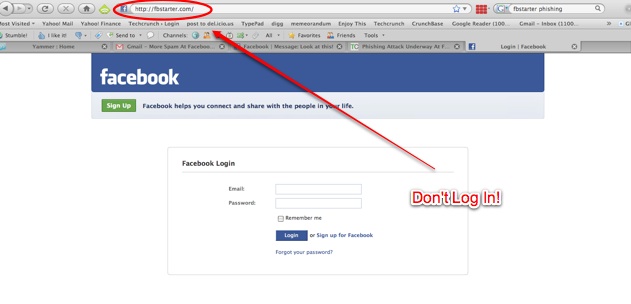



 This one slipped through the cracks, but apparently
This one slipped through the cracks, but apparently 


 You’ve likely already seen it, but it’s still a little unbelievable to me that Gmail included feces as one of its emoticons. If you haven’t seen it, go ahead, check it out, it’s there (the very last one on the bottom row). And now, we’re getting more emoticons — a whole hell of a lot more.
You’ve likely already seen it, but it’s still a little unbelievable to me that Gmail included feces as one of its emoticons. If you haven’t seen it, go ahead, check it out, it’s there (the very last one on the bottom row). And now, we’re getting more emoticons — a whole hell of a lot more.

 I came across some very interesting news today. I was mostly minding my own business, hammering away at our various sources in the hardware industry and trying to dig up some sort of information on exactly
I came across some very interesting news today. I was mostly minding my own business, hammering away at our various sources in the hardware industry and trying to dig up some sort of information on exactly 
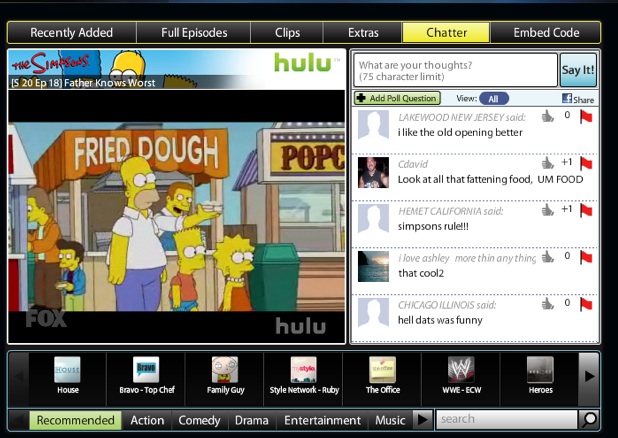

 Earlier this month,
Earlier this month, 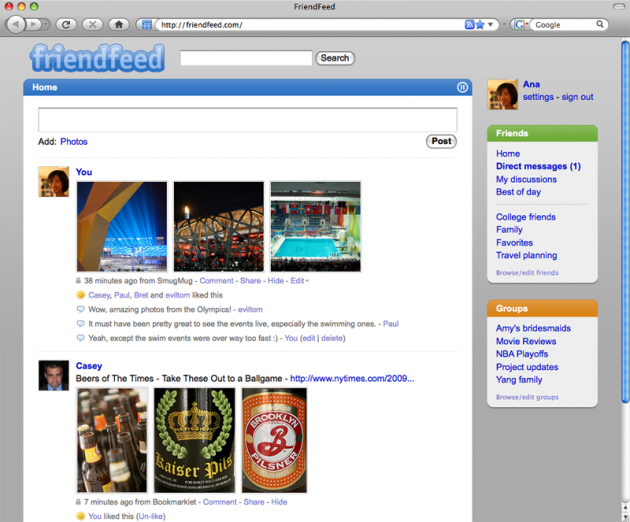



 People search engine
People search engine 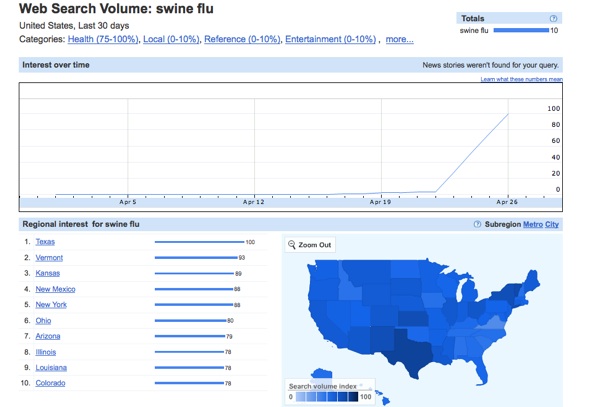
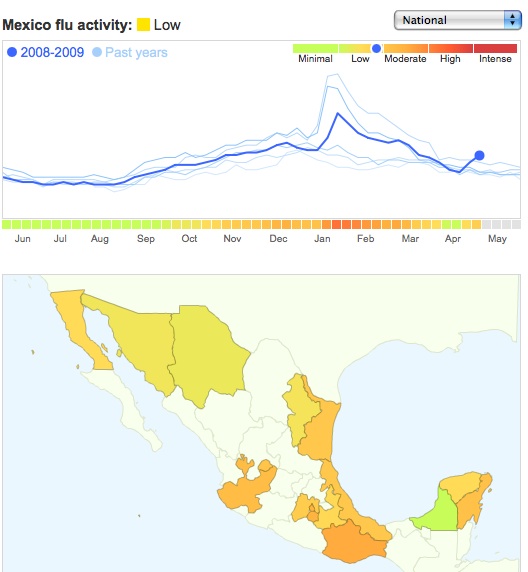
 There’s a lot of buzz swirling about
There’s a lot of buzz swirling about 